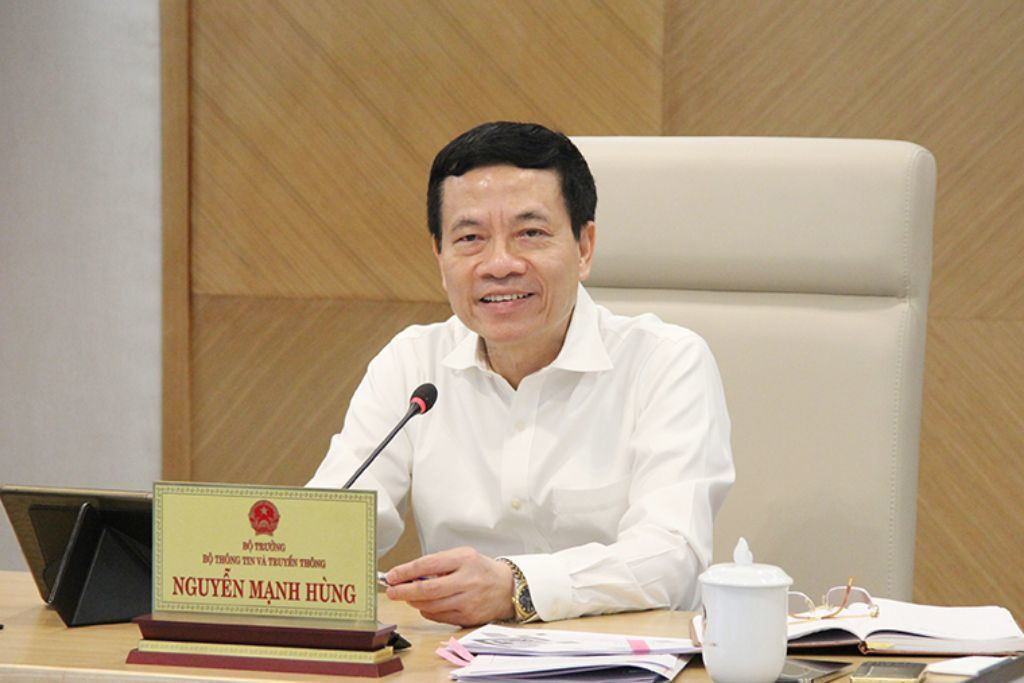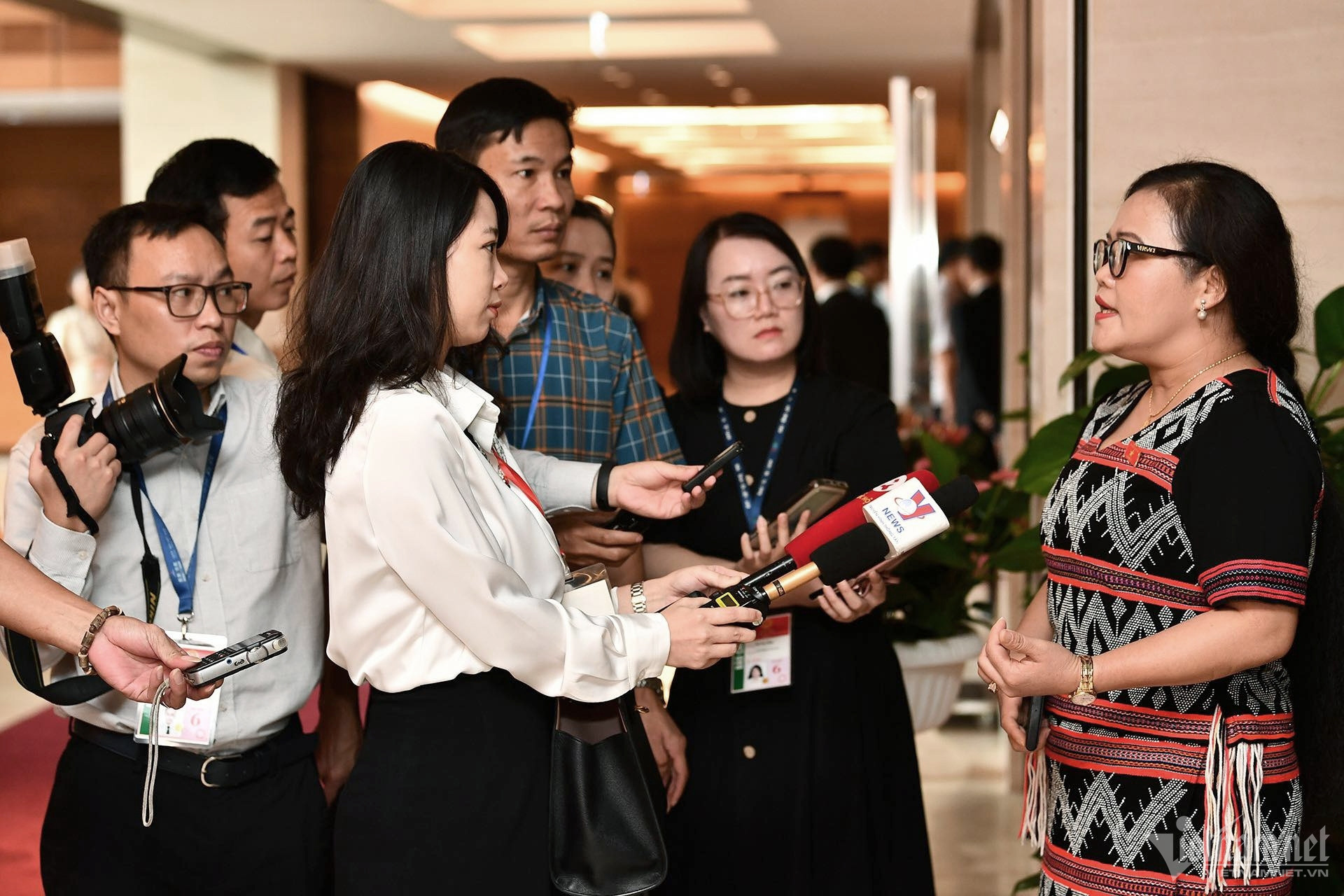
Vietnam Revolutionary Press has been around for 99 years. Next year, we will celebrate its 100th anniversary. The founder of the Vietnam Revolutionary Press is President Ho Chi Minh.
Revolutionary journalism honestly reflects the mainstream of Vietnamese society, creates social consensus and trust, spreads positive energy, uses beauty to eliminate ugliness, fuels the aspiration for a strong and prosperous Vietnam, and builds the spiritual strength necessary to achieve the goal of Vietnam becoming a developed, high-income country by 2045, when Vietnam is just 100 years old.
Over the years, we have done well in fulfilling this mission. In a survey of professional prestige in society, journalism was ranked 9/10 in 2018, and by 2022, it had risen to 3/10, just behind the teaching and medical professions.
The national press workforce comprises 41,000 people, with 23,000 holding press cards. There are 797 press agencies, including 127 newspapers. The number of newspapers has decreased by 40% compared to the time before the Planning for the press was issued. The state budget for the press in 2023, covering both regular and investment expenses, is 7,800 billion VND, accounting for 0.47% of the total state budget - currently a low level.
Each year, the media produces approximately 40 million news articles, which, upon entering cyberspace, expand to 400 million articles, forming the mainstream narrative online. Additionally, they generate 20,000 hours of radio and 50,000 hours of television content annually, with policy communication making up 20% of this output.
Here, I would like to share some thoughts:

First, we must invest in the digital transformation of the press. One of the five leadership methods of our Party is propaganda, and the press is the vanguard of this effort. The Party and the State must prioritize investing in the press.
Historically, our tools were paper and pen, but now we have technology, primarily digital technology. The press must create digital platforms for public participation in news creation. The digital platform is technology. While the press writes articles, it also needs technological tools to evaluate information trends and public sentiments online, guiding public opinion.
A press agency that has digitalized should allocate up to 30% of its costs, both investment and regular expenses, to technology. Similarly, up to 30% of its human resources should be technology experts. Investment is needed for this digital transformation. As our country modernizes, so must the press. Investment in digital technology is not costly but yields substantial and rapid results.
Recently, the budget for press investment has been modest (0.22% of total state investment). After issuing the Press Digitalization Strategy, it has not increased. The Ministry of Information and Communications has recommended that the Government and the Prime Minister direct press management agencies to invest in IT to modernize press agencies. Vietnam has many strong and excellent IT companies, which can be tasked with implementing the digitalization of the press when there is an investment budget.
The Ministry of Information and Communications has advised the Prime Minister to issue the Strategy for Digitalization of the Press and has established the Center for Supporting Digitalization of the Press. The Ministry is also the focal point for state management of digital transformation and is committed to accompanying and supporting press agencies in their digital transformation.
The second is the "dual" mechanism for the press, which means that press agencies operate both as public service units and as enterprises. They fulfill the propaganda tasks of the Party and the State, providing public information services and requiring investment, task assignments, and orders from the Party and the State.
However, press agencies also compete with digital platforms, need to attract quality journalists and media workers, and must accept market mechanisms. Therefore, they must also operate like enterprises. Business activities in journalism should aim to support journalism, not for profit.
Thirdly, it is essential to change the perception of authorities at all levels regarding communication in general and policy communication in particular. On March 21, 2023, the Prime Minister issued a significant directive on policy communication.
A breakthrough reform in the press mechanism is to allow press agencies to operate under two parallel mechanisms: as public service units and as enterprises. However, business journalism is intended to support newspaper production, not for profit.
Previously, policy communication was seen as the sole responsibility of specific agencies. The Prime Minister has now directed that policy communication must be regarded as a function, task, and duty of authorities at all levels. Therefore, authorities must establish specialized apparatuses for communication work and allocate a regular annual budget for this task, including ordering services from the press.
This budget serves as the funding source for ordering agencies. Consequently, the Ministry of Information and Communications has issued an action plan to enhance communication apparatuses at all levels, provide guidance on budget allocation, and amend relevant circulars on economic and technical norms, enabling governments at all levels to place press orders effectively.
On the occasion of the 99th anniversary of Vietnam Revolutionary Press Day, the Ministry of Information and Communications extends best wishes to all journalists. May you work with the spirit of serving the Fatherland and the People, and may the Revolutionary Press always be pioneering, leading, and constantly innovating.
The Vietnamese press has been, is, and will always be loyal to the Party's cause for a prosperous, strong, democratic, fair, civilized, and happy Vietnam.
Nguyen Manh Hung